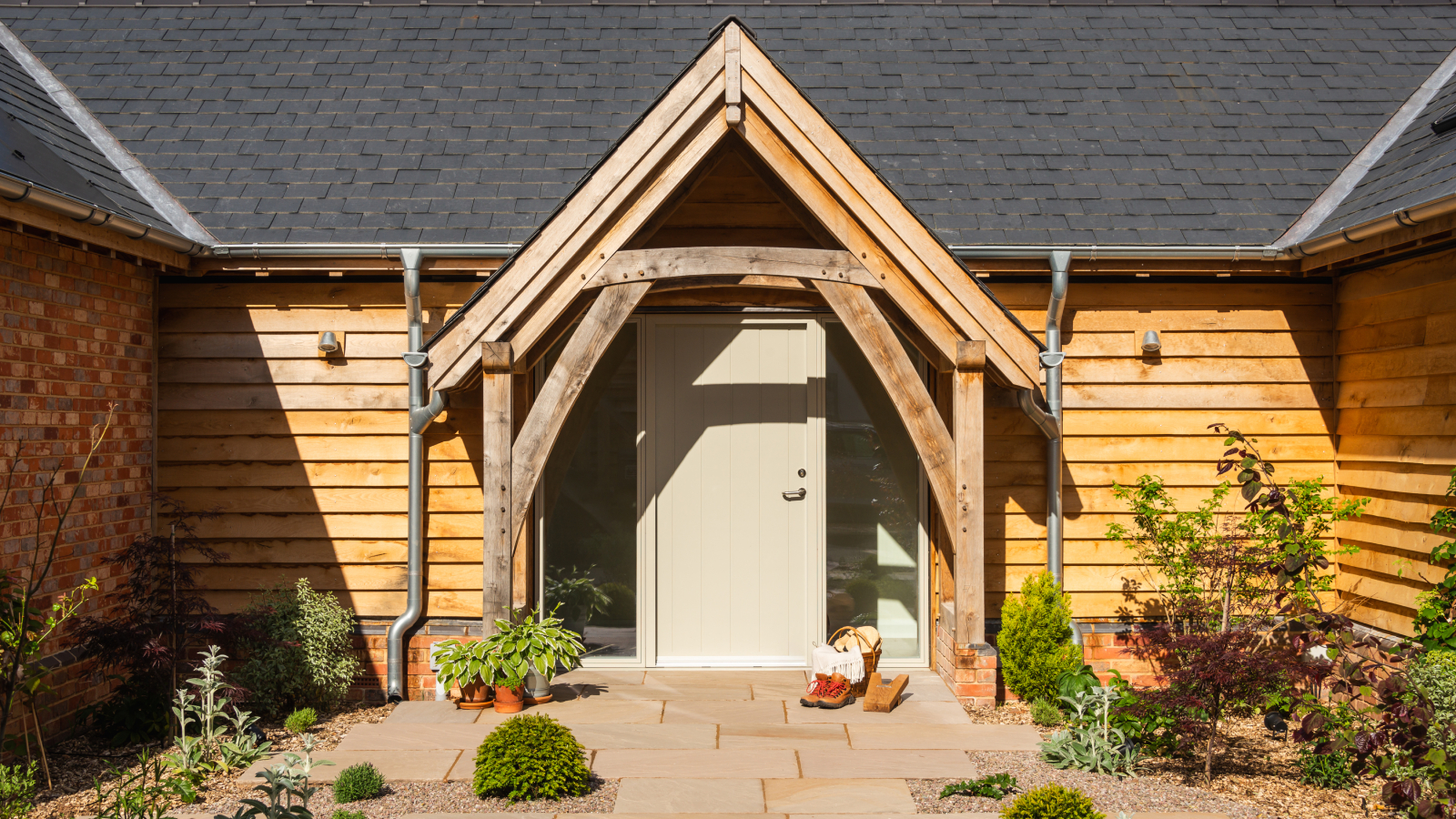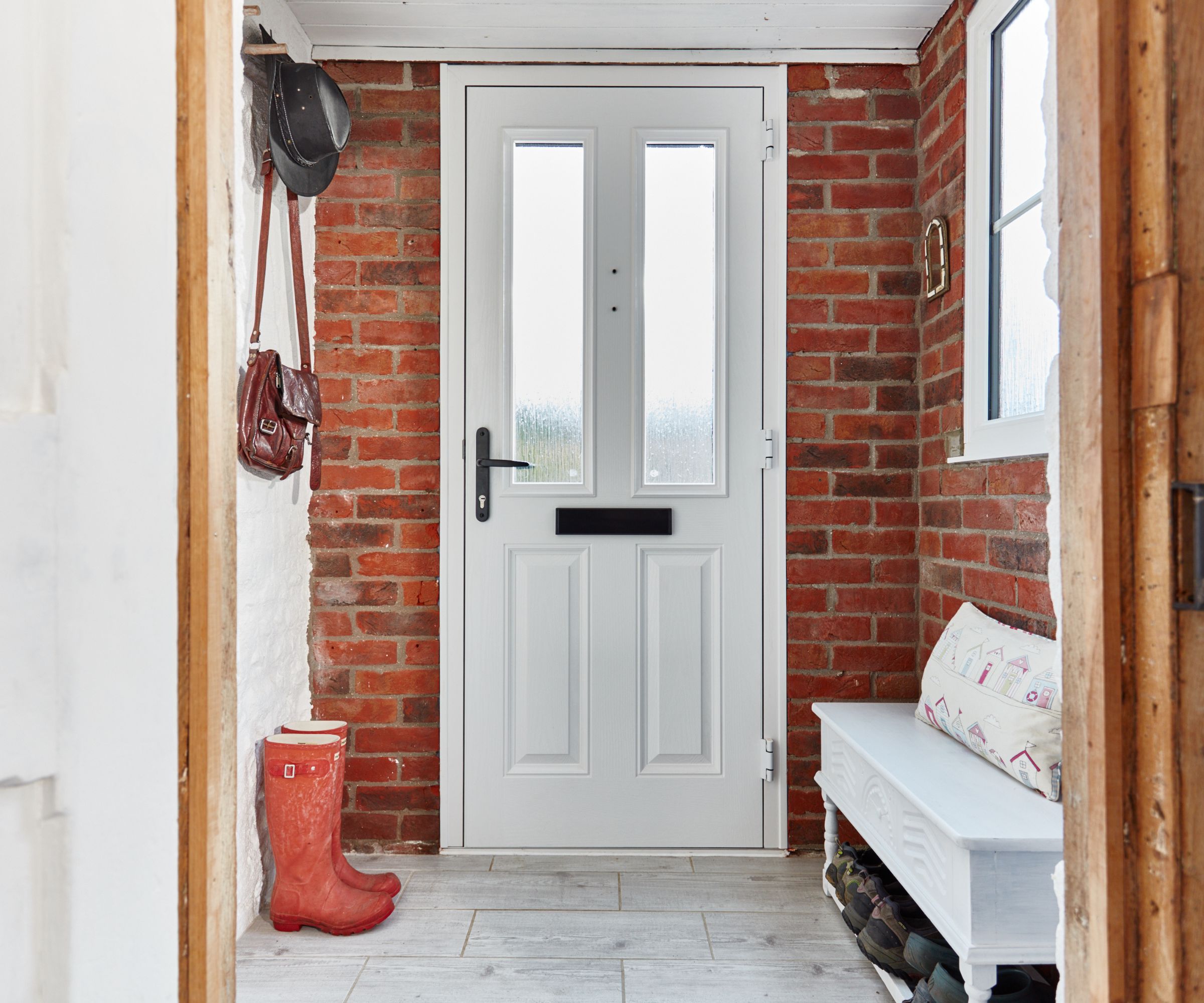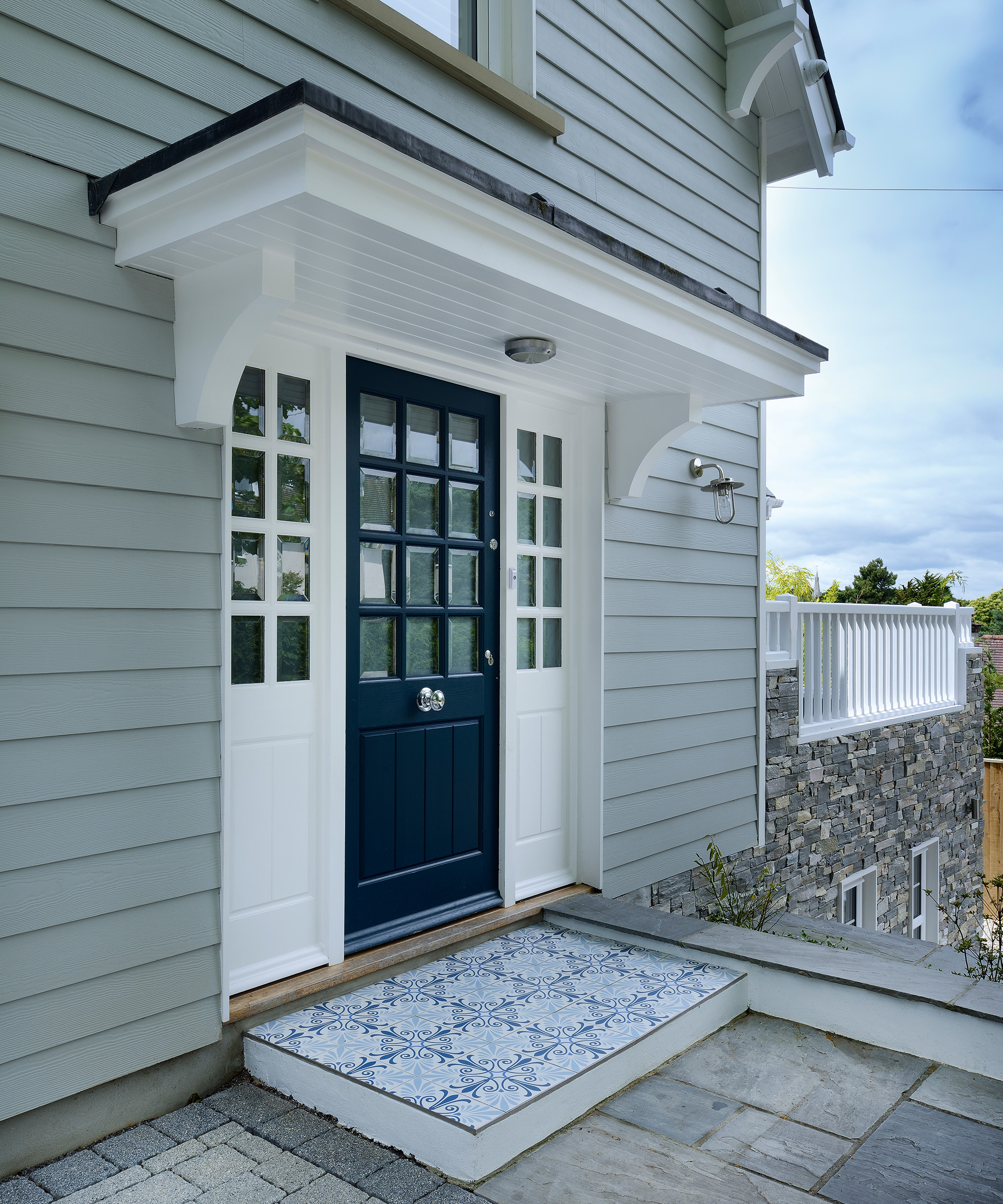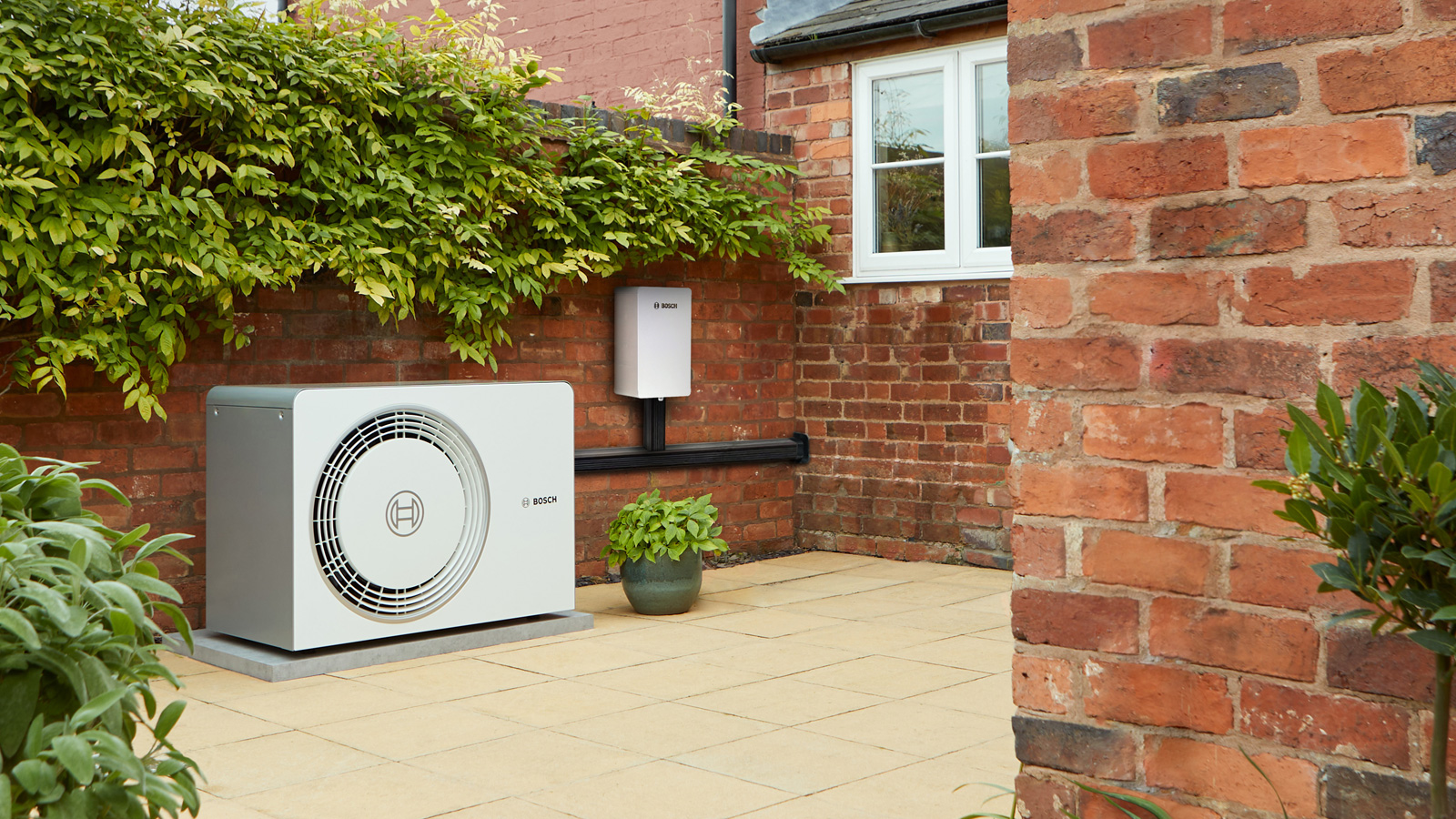How a porch can add value to your home — but only if you get it right
We explore the designs that work, the ones that don’t and how to make your investment pay off

It’s easy to overlook the humble porch, but as the first thing people see when arriving at your home, it deserves more attention than you might think. It frames your home entrance, shapes first impressions, and with the right design, could even sway buyers choosing between similar properties. But does a porch actually add value to your home?
It’s a fair question, especially when space and budget are tight. The right porch ideas can boost kerb appeal, improve security, and help your home stand out to buyers – but if poorly planned, it risks looking like an afterthought, or worse, knocking value off entirely.
So, when does adding a porch really pay off? Here’s what works, what to avoid, and how to make the most of your investment.
Can a porch increase your home’s value?
“Adding a porch can positively influence a property's value in several ways,” explains Rachael Munby, chief marketing officer at Anglian Home Improvements. “For starters, it enhances kerb appeal, giving the home a more welcoming and polished exterior. It also adds practical benefits, such as extra storage space and an additional layer of security – features that are often high on buyers’ priority lists."
What practical benefits do porches offer?

Before thinking in pounds and percentages, it’s worth considering how a porch can positively impact your day-to-day living. “Covered porches offer functional benefits such as added storage space for outdoor shoes and umbrellas,” points out Rachael Munby.
They also create a useful 'buffer zone' to remove wet coats, wipe down pets, or receive parcels without opening your front door directly into your living space. What’s more, in colder months, a porch can help retain warmth by draught proofing.

Rachael Munby leads innovation and quality at Anglian, ensuring its reputation as a home improvement leader. She champions British manufacturing, pioneering products, and outstanding customer satisfaction.
How much return on investment can you expect from a porch?
If you’re wondering whether a porch has the potential to add value to your home, the short answer is: yes, if you do it properly.
Bring your dream home to life with expert advice, how to guides and design inspiration. Sign up for our newsletter and get two free tickets to a Homebuilding & Renovating Show near you.
“The average porch can potentially see an 80% return on investment when it comes to selling a property,” explains Liam Spencer, owner of Northallerton Glass. “But this will depend on the housing market and if the porch was professionally designed and built.”
To put that into perspective, the average porch cost (a small 3m² brick porch) is around £4,500. If that results in a £3,600 uplift in your home’s value, you’ve achieved an 80% return. While you're unlikely to make a direct profit, you’re making your money work harder, especially if the porch helps generate more interest or speeds up the sale.
Of course, a return isn’t guaranteed and a poorly designed porch or a DIY build could also work against you. To get the most from your investment, aim for a design that feels like a natural porch extension, both in terms of style and function. If it looks tacked on or blocks natural light, buyers are likely to see it as a drawback rather than an attractive feature.

With over a decade in glass processing and glazing, Liam combines expert know-how with a passion for both bespoke projects and everyday glazing services.
Which types of porches add the most value?

Not all porches are created equal, and the style you choose can have a big impact on your home’s resale potential.
“When considering the types of porches that offer the best return on investment, it largely depends on the property type, location, and the needs of potential buyers,” explains Rachael Munby. “That said, we find that a covered porch often provides excellent value due to its versatility and usability throughout the seasons.”
Liam Spencer agrees: “Covered or screened-in porches offer a good return on investment, as they add usable space to a home, as well as being great for areas where privacy or the weather are a concern.”
How do materials and finishes affect its value?
“Your choice of porch materials and finishes plays a key role in balancing aesthetics, durability, and long-term costs,” says Rachael Munby at Anglian Home Improvements. These decisions will determine how well a porch weathers, how often it needs attention, and how much value it holds over time.
For example, uPVC is a go-to material for budget-conscious builds thanks to its low maintenance and thermal efficiency, but it doesn’t offer the same polished finish as more premium alternatives. In contrast, oak frame porches add a level of craftsmanship that potential buyers appreciate, though they cost more and require regular care to protect the timber.
Finishes matter too. “Using weather-resistant paint on your porch can help to prevent paint peeling or fading,” explains Liam Spencer. “Just ensure that you're touching up any problem areas before they deteriorate further, as the external appearance of a home can affect its value.”
Lastly, don’t neglect the roof design. According to Rachael Munby, a flat or awkwardly pitched roof can jar with your home’s proportions, while a well-chosen shape – be it gable, hipped or pitched – helps the structure feel integrated and intentional.
Wondering about the difference between a porch and a veranda? Our guide to porch vs veranda breaks down how each one works, and which is the better fit for your home.

Gabriella is an interiors journalist and has a wealth of experience creating interiors and renovation content. She was Homebuilding & Renovating's former Assistant Editor as well as the former Head of Solved at sister brand Homes & Gardens, where she wrote and edited content addressing key renovation, DIY and interior questions.
She’s spent the past decade crafting copy for interiors publications, award-winning architects, and leading UK homeware brands. She also served as the Content Manager for the ethical homeware brand Nkuku.
Gabriella is a DIY enthusiast and a lover of all things interior design. She has a particular passion for historic buildings and listed properties, and she is currently in the process of renovating a Grade II-listed Victorian coach house in the West Country.
